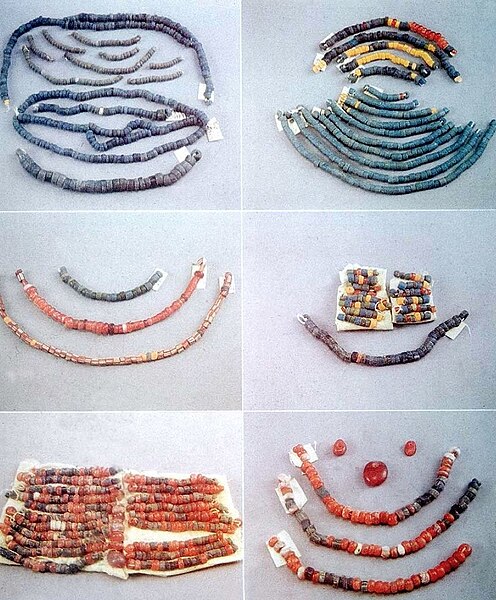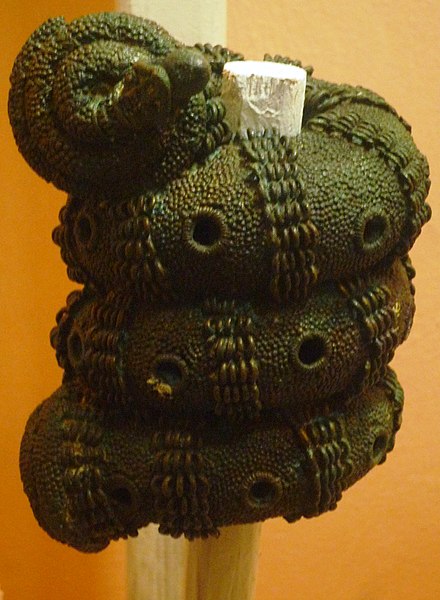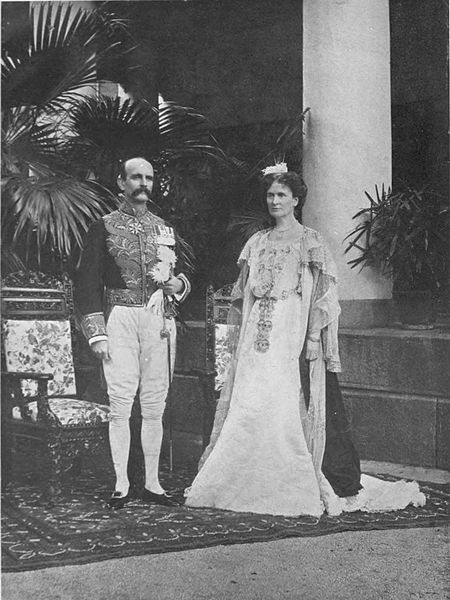The Igbo people are an ethnic group in Nigeria. They are primarily found in Abia, Anambra, Ebonyi, Enugu, and Imo States. A sizable Igbo population is also found in Delta and Rivers States. Igbo is also considered a very minority tribe in states such as Benue, Kogi, Akwa Ibom and Edo. Ethnic Igbo populations are found in Cameroon, Gabon, and Equatorial Guinea, as migrants as well as outside Africa. There has been much speculation about the origins of the Igbo people, which are largely unknown. Geographically, the Igbo homeland is divided into two unequal sections by the Niger River—an eastern and a western section. The Igbo people are one of the largest ethnic groups in Africa.
Igbo family in traditional attire
Glass beads from Igbo-Ukwu
An Igbo man with facial scarifications, known as ichi, early 20th century
Bronze ornamental staff head, 9th century, Igbo-Ukwu
Nigeria, officially the Federal Republic of Nigeria, is a country in West Africa. It is situated between the Sahel to the north and the Gulf of Guinea to the south in the Atlantic Ocean. It covers an area of 923,769 square kilometres (356,669 sq mi), and with a population of over 230 million, it is the most populous country in Africa, and the world's sixth-most populous country. Nigeria borders Niger in the north, Chad in the northeast, Cameroon in the east, and Benin in the west. Nigeria is a federal republic comprising 36 states and the Federal Capital Territory, where the capital, Abuja, is located. The largest city in Nigeria is Lagos, one of the largest metropolitan areas in the world and the largest in Africa.
Nok sculpture, terracotta
Royal Benin ivory mask, one of Nigeria's most recognized artifacts. Benin Empire, 16th century.
Depiction of Benin City by a Dutch illustrator in 1668. The wall-like structure in the centre probably represents the walls of Benin, housing the Benin bronze decorated historic Benin City Palace.
The Lord and Lady Lugard, 1908








